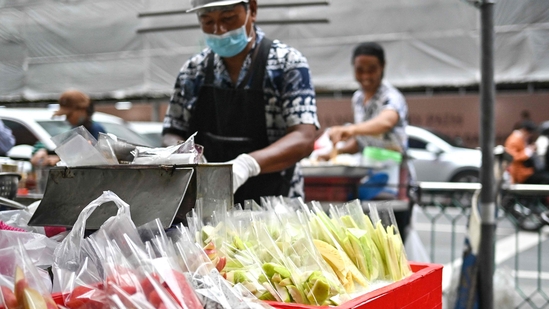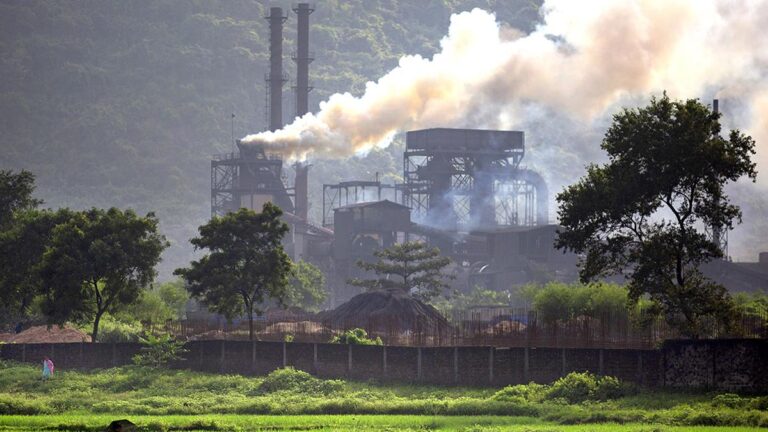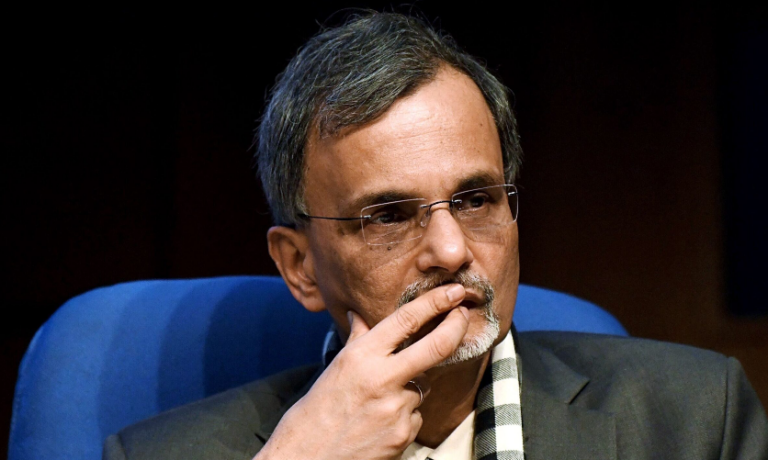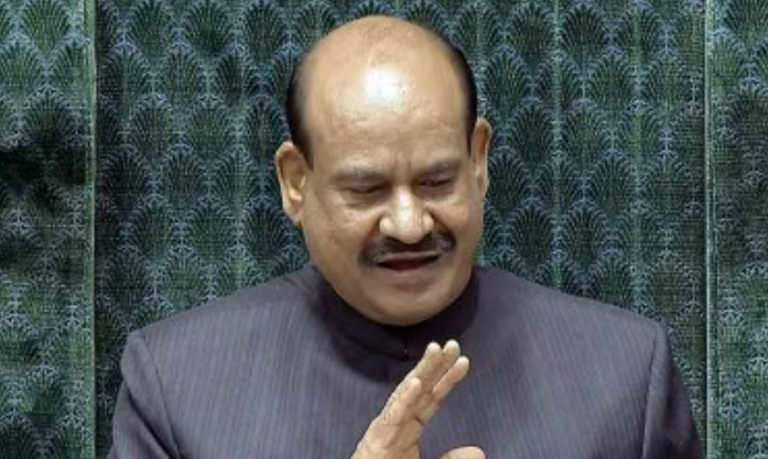
Fresh fruits are kept for sale in single-use plastic bags at a streetside stall in Bangkok on September 17, 2024. Each year the world produces around 400 million tonnes of plastic waste, much of it discarded after just a few minutes of use. Thailand started limiting single-use plastic before the pandemic, asking major retailers to stop handing out bags for free. But the policy has largely fallen by the wayside, with little uptake among country's street food vendors. (Photo by MANAN VATSYAYANA / AFP)
Much plastic waste is soiled and composed of several different layers, making it too complex for the usual recycling method.
Plastic is ubiquitous. Around 1m plastic water bottles are sold every minute and 5trn plastic bags are used around the world every year, according to the un’s Environment Programme. Half of all production, which is growing faster than that of any other material, is designed for single-use applications. The world’s annual output of over 400m tonnes is set to reach 1,100m by 2050. Mountains of waste mean pressure from both the public and regulators to improve recycling.
There is a problem, though. Much plastic waste is soiled and composed of several different layers, making it too complex for the usual recycling method of chopping it into bits before remoulding it. Despite efforts to increase recycling rates, more than 90% of plastic ends up incinerated, in landfills or dumped in nature. ln response, large consumer-goods companies such as Nestlé, PepsiCo and Procter & Gamble are exploring new ways of recycling to transform waste back into feedstocks from which new plastic can be made.
Other companies are getting in on the act.





